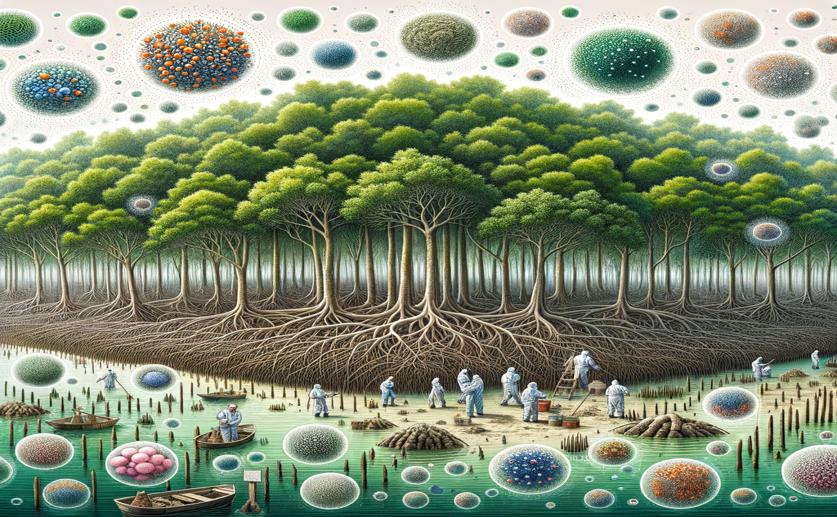
Diverse Ways Mangrove Yeasts Boost Plant Growth for Conservation
Jenn Hoskins
25th March, 2024

Image Source: Natural Science News, 2024
Key Findings
- Yeasts from mangroves in Puthuvype and Kumbalam boost plant growth and fight diseases
- Three yeast strains showed strong growth-promoting traits and resilience to stress
- These yeasts significantly improved growth in mangrove seedlings in experiments
SustainabilityBiotechPlant Science
References
Main Study
1) Multifarious plant growth-promoting traits of mangrove yeasts: growth enhancement in mangrove seedlings (Rhizophora mucronata) for conservation.
Published 24th March, 2024
https://doi.org/10.1007/s00203-024-03913-9
Related Studies
2) Diversity, Distribution and Bioprospecting Potentials of Manglicolous Yeasts: A Review.
3) Plant growth-promoting yeasts (PGPY), the latest entrant for use in sustainable agriculture: a review.
4) Plant growth-promoting traits of yeasts isolated from Spanish vineyards: benefits for seedling development.
5) Mining Halophytes for Plant Growth-Promoting Halotolerant Bacteria to Enhance the Salinity Tolerance of Non-halophytic Crops.



 16th February, 2024 | Phil Stevens
16th February, 2024 | Phil Stevens